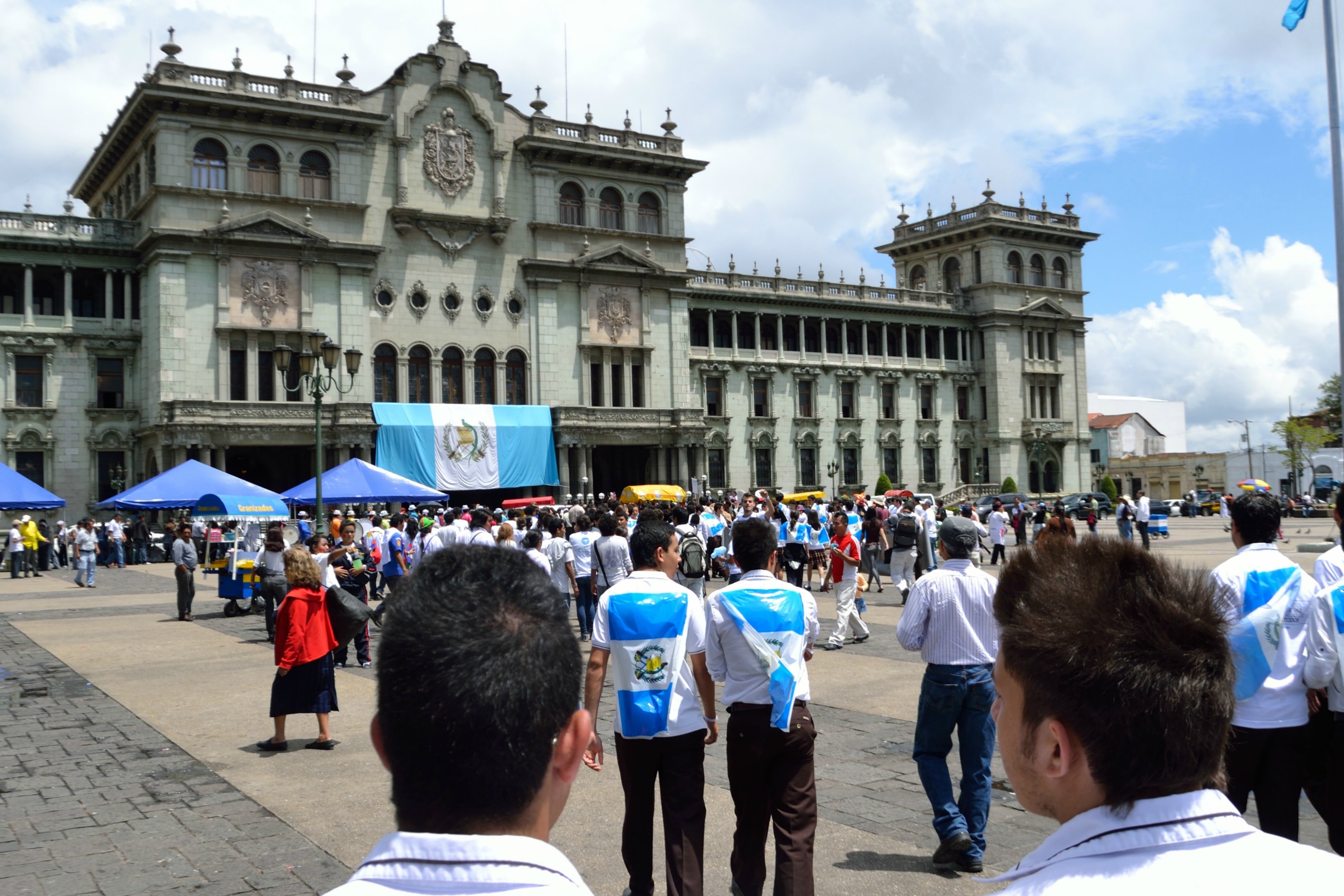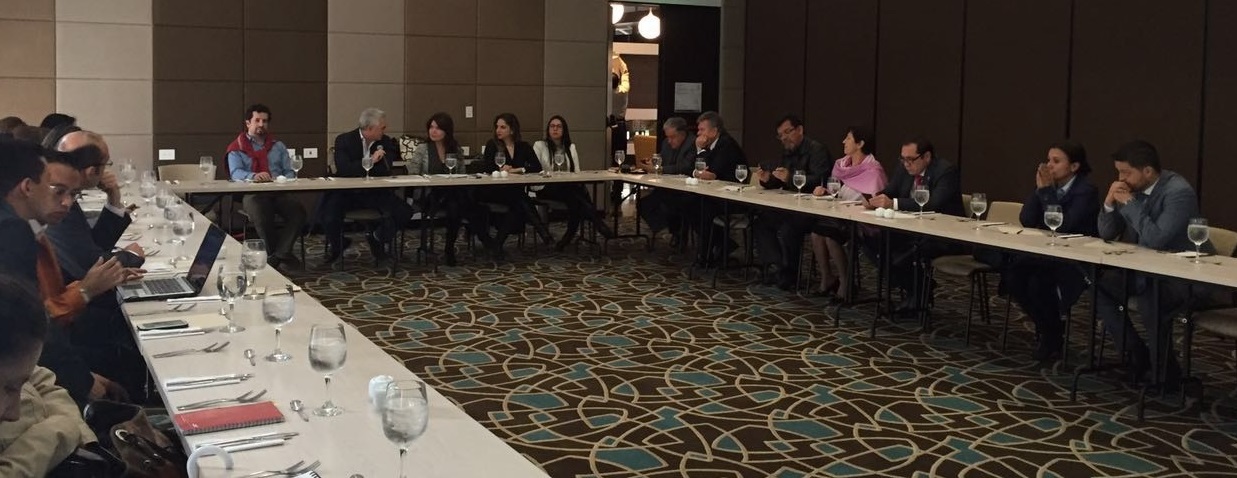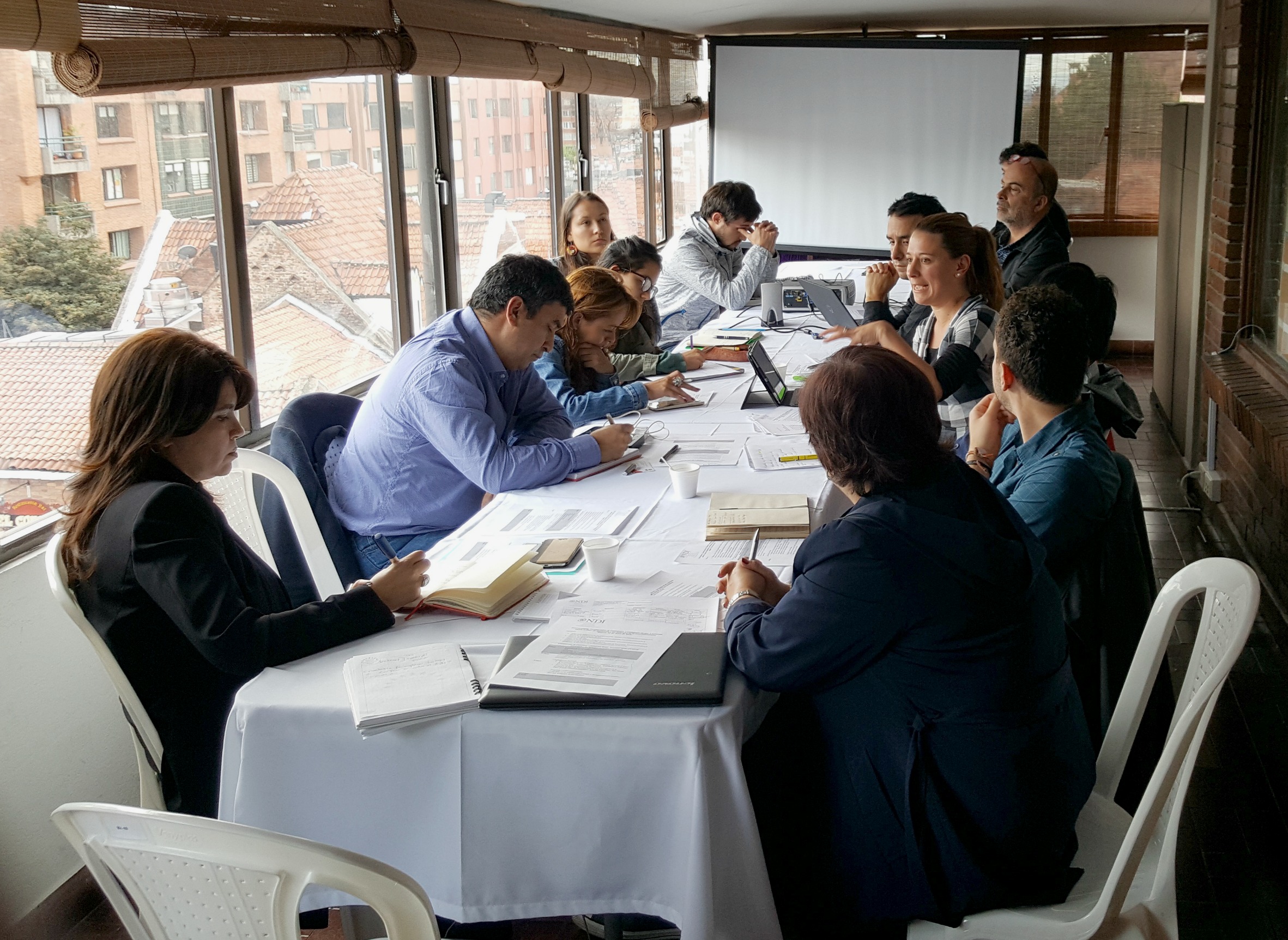Citizens Capacities for Peace: The Guatemalan Post-Conflict Experience

From June 13 - 15 the National Democratic Institute – NDI – based in Colombia, organized a forum for dialogue and learning about the pedagogy and education of peacebuilding. This forum took place simultaneously with the historic moment Colombia is currently living, as a result of the negotiations developed between the National Government and the Revolutionary Armed Forces of Colombia – FARC.
From the lessons learned of several peace processes, especially the post-conflict experience in Guatemala, Ana Glenda Tager Rosado, Director of the Interpeace Regional Office in Latin America, was invited by NDI to participate in two activities with representatives of the Unit for Compensation to the Victims of the Armed Conflict and afterwards with several representatives of Political Parties.

NDI activity in Colombia. Photo credit: Interpeace
In both activities, the Guatemalan post-conflict experience provided invaluable lessons to the Colombian peace process, outlining the obstacles that challenged the implementation of the 1996 Peace Agreements in Guatemala.
The Guatemalan experience demonstrates that the pedagogy for peace cannot only focus on the practice of teaching peace and informing people of the Peace Agreements, it must fundamentally transform the violent dynamics that are rooted in the social interactions of everyday life, which exist beyond the confines of the armed conflict. This approach needs an active involvement, ownership and overall participation of the different sectors of society, to ensure that peace becomes a part of their attitude and life.

Ana Glenda Tager, Regional Office Director for Latin America. Photo credit: Andrea Fernández.
Therefore, pedagogy for peace must be understood as a permanent process, not an exceptional one. Pedagogy for peace must be implemented during the negotiation process, by bringing the negotiation table close to the citizens, in order for them to own the agreements. Moreover, during the implementation of the agreements, peace pedagogy must provide a comprehensive understanding and a constant social verification of these agreements, to ensure the implementation process; and during the peace consolidation process, peace pedagogy must provide justice and reconciliation.
Finally, an important lesson learned in Guatemala is the need to ensure through all means that peace will not be used for political competition, guaranteeing that the process will not lose its non-violent and conciliatory essence.

NDI meeting in Colombia. Photo credit: Interpeace























